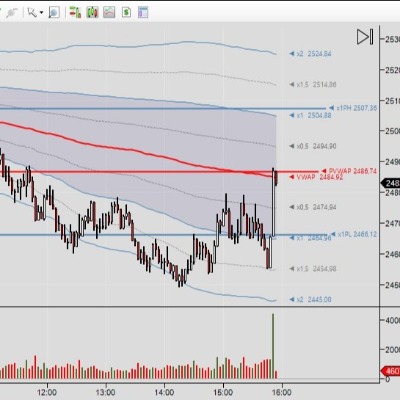Activity
Mon
Wed
Fri
Sun
Jan
Feb
Mar
Apr
May
Jun
Jul
Aug
Sep
Oct
Nov
Dec
What is this?
Less
More
Memberships
Invest & Retire Community
Public • 2.5k • Free
18 contributions to Invest & Retire Community
Questions Regarding "Making $1,000 a Month"
If I buy 100 shares of MSFT at the current price of $400 and sell a call option with a strike price of $405, and at expiration the current price is $395, I understand that I received the premium and still hold the shares with an unrealized loss of $5 per share. In the videos, it is mentioned that we can repeat this process each month. However, what if the price continues to decline and I repeat the same operation? For instance, if the current price drops to $385 the following month, and I sell a call option with a strike price of $390, and at expiration the current price is $392, I might end up with a realized loss of $8 per share. While this might not be catastrophic as the premium could potentially cover the difference, what if we enter a moderate correction ranging from 5% to 10% from recent highs? Would this strategy still be feasible, and how should we address such a scenario?
9
61
New comment Mar 26
5 likes • Feb 28
@Leon K That's interesting. On average, how much time elapsed between each adjustment to tailor it to your liking? I'm asking because I'm interested in learning more about options trading, but I prefer strategies that don't require constant supervision that's why the monthly income the way it was presented was seducing.
US Stocks Weekly Performance - week ending 23 Feb 2024
Stocks that rose included: NVDA +8.4% AMZN +3% BRK-B +3% ABT +5.1% WMT +3.7% HD +3% Stocks that fell included: ADBE -6.2% TSLA -4.2% DIS -4% PANW -23% UBER -3.9%
4
3
New comment Feb 27

AMZN trade for anybody that is interested
Bullish play with a target stock price of $185 Strategy has +435% upside potential and 40% undervalued Strategy: AMZN Calendar Call Spread Sell 08-Mar-24 185 Call 1.24 Buy 22-Mar-24 185 Call 2.16 Debit of $0.78 Risk 1K for max profit of 7K
7
45
New comment Apr 12

Paper trading or not..
Certainly! **Paper trading** is a simulated market environment where a prospective trader writes down their trades and tracks their (imaginary) profits and losses. It's a way to test different trading strategies without the risk of losing real money, allowing investors to learn and build trading skills in either a bear or bull market . Here are some key points about paper trading: **Pros of Paper Trading**: 1. **Skill Building**: For new traders, paper trading offers a way to make rookie mistakes without risking real money. It helps them get comfortable with the process of buying and selling stocks, ensuring they don't accidentally enter a limit order when they mean to place a market order. 2. **Experimentation**: Paper trading allows investors to experiment with different strategies. Whether it's shorting a stock or trying out swing trading, paper trading provides practical experience without financial risk. 3. **Self-Reflection**: Investors can learn about their own strengths and weaknesses through paper trading. It helps them understand tendencies and weaknesses without paying for costly lessons. 4. **Emotional Control**: Investing with hypothetical dollars teaches rational decision-making during market fluctuations. It's valuable practice for managing emotions under stress. **Cons of Paper Trading**: 1. **Neglects Market Correlation**: Paper trading doesn't fully account for market correlations, which can impact real-world performance. 2. **Neglects Slippage and Commissions**: In actual trading, slippage (the difference between expected and actual execution prices) and commissions affect returns. These factors are often overlooked in paper trading. 3. **Neglects Emotional Reality**: Real emotions—such as greed and fear—play a significant role in live trading but are absent in paper trading. 4. **Formfitting**: Traders may unknowingly tailor their strategies to historical data, leading to overfitting. 5. **No Risk or Stress**: While this is an advantage for learning, it can also lead to taking greater risks because there are no real losses.
6
28
New comment Feb 27
$1000 per Month Via MSFT
Previously I made about $3,623 on MSFT ~ 11 weeks. Today, I collected $550 premium by selling a put on MSFT with 2/16/24 expiration. Accummulatively I made $4,173. Thanks Eric!
12
64
New comment 21d ago
1-10 of 18
@ian-bliss-3046
I am retired but my main occupation was programmer-analyst.
Active 37d ago
Joined Dec 28, 2022
Canada
powered by




